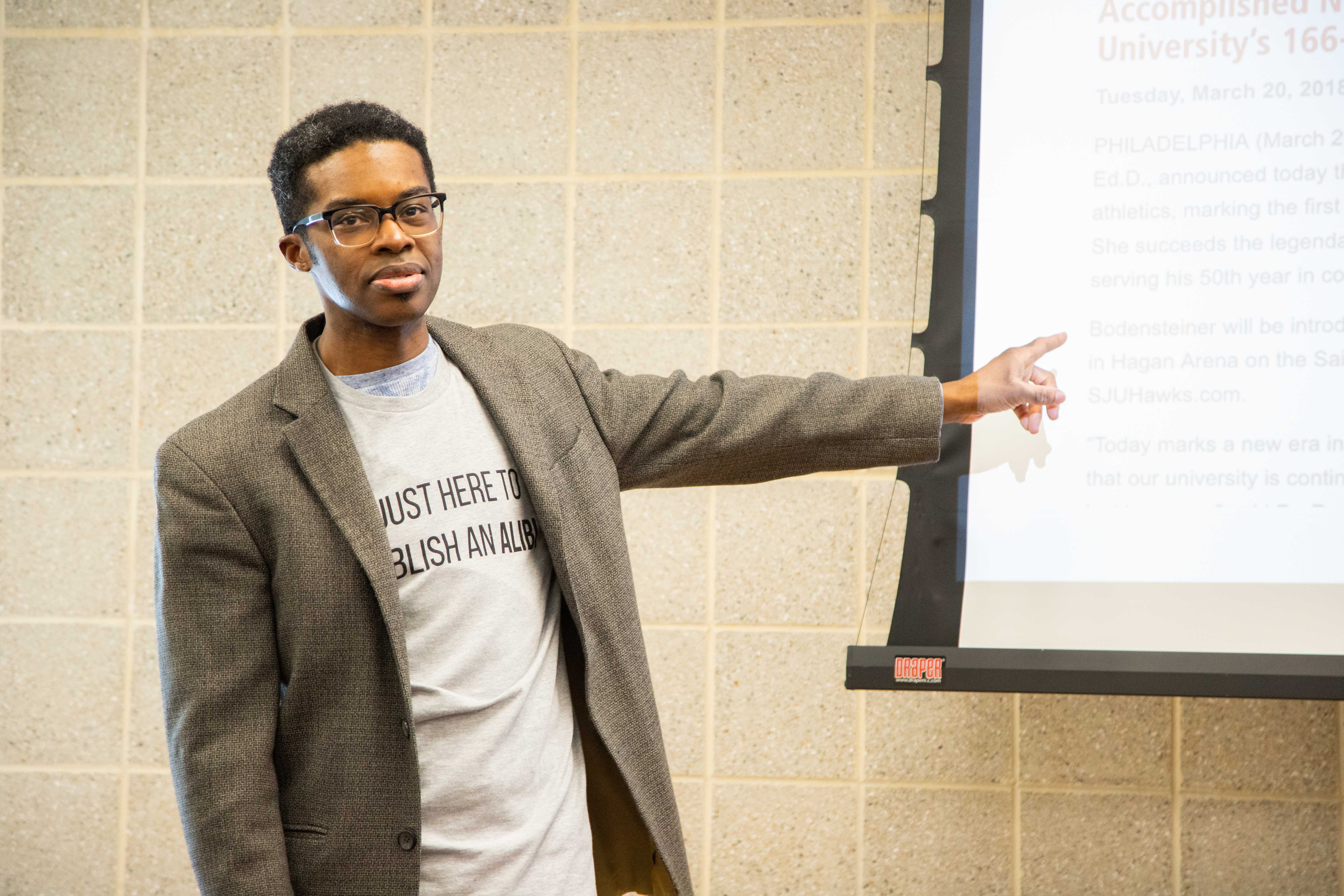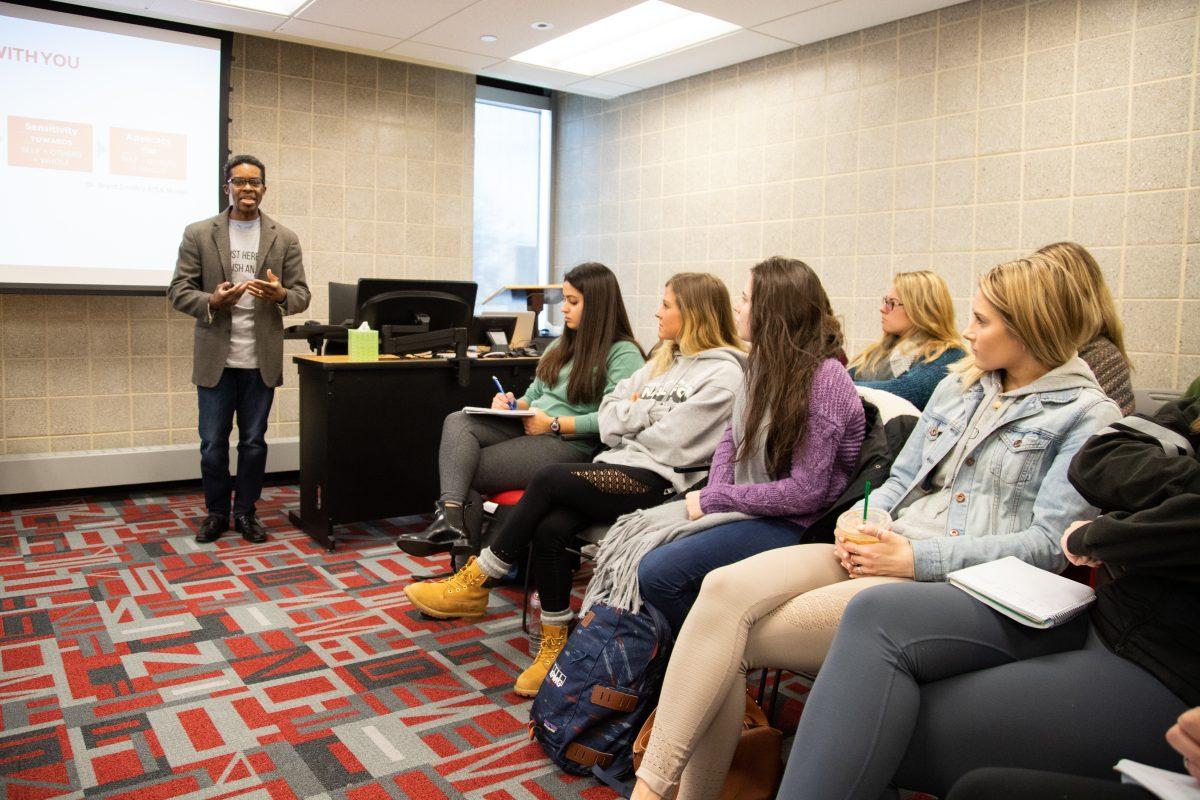Furthering the conversation on campus
Students and faculty gathered to engage in a 45-minute discourse on inclusion and diversity in Post Learning Commons on Feb. 21.
The discussion was organized by the Faith-Justice Institute and led by Brent Smith, Ph.D., professor of marketing, who said he joined the university in 2005 as one of only three black professors in total.
Conversations like these have been sparked by a racial bias incident that took place last semester, but for Smith, these dialogues are long overdue.
“It’s a conversation we haven’t had per- haps ever,” Smith said. “From a minority faculty’s perspective, what life is like, what climate is like. [It’s been] over a decade.”

This session was the second of three. The first discussion was led by Ann Green, Ph.D., professor of English, and the last will be led by Jennifer Dessus, Ed.D., director for inclusion and diversity access programs.
Smith opened the discussion centered around the question, “Can I see myself here?” challenging attendees to put themselves in the shoes of people who look differently than they do and determine how they would feel walking around campus.
As a marketing professor, Smith posed the question of social justice in terms of eco- nomics and pointed out that people tend to spend their attention on some issues, missing others in the process, such as race.
Throughout the 45-minute dialogue, Smith repeated the sentiment, “If you care, then be curious.”
Stephanie Sickinger ’19 works for the Faith-Justice Institute and said she attended the event to contribute to the conversation about race on campus.
“It enhanced a lot of my understanding of what it means to be an advocate and an ally,” Sickinger said. “It inspired me to continue to be persistent.”
Engage 45 was organized by Jill Ami- trani-Welsh, MSW, associate director of the Faith-Justice Institute. She said these events are facilitated by the institute as a response to the events of last semester.
“[It’s about] recognizing that incidents like last semester’s that was covered in The Hawk [wasn’t] an isolated incident, but there’s a greater need for racial justice and conversations around racial justice on campus,” Amitrani-Welsh said. “This was our way of trying to respond to it in a way that reflects a lot of what our institute is about, and that’s experiential learning.”
For Green, the event is about living social justice rather than simply talking about it.
“With sessions like this, often people are uncomfortable talking about race, and they don’t have a language for it, so this is one way to give people a language for the hard discussions,” Green said. “It gets people to lean into their discomfort.”
Smith said he wants students to be more inquisitive through discussions like these and to use their curiosity and Jesuit identity to bring about administrative change.
“Why are [diverse faculty] important to enriching a student experience?” Smith said. “Why are we so absent from authority posi- tions in administration, from department chairs to deans and on up? We have a direct impact on student life, especially for minority students, and I think that line has not been well drawn.”
The final Engage 45 session led by Dessus, titled “Finding your belonging in the SJU community,” will take place on March 28.














































